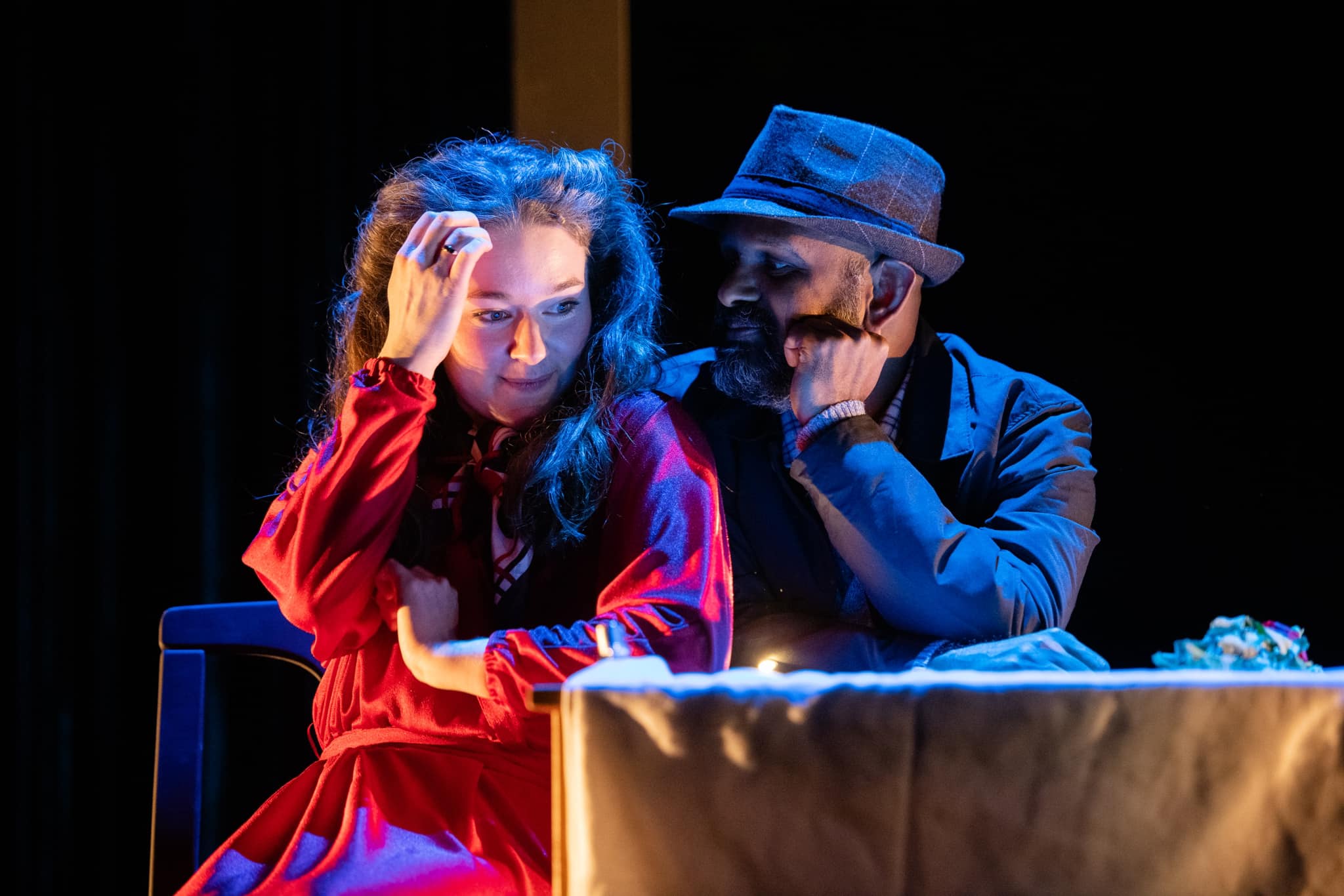


17/05/23
Traverse Theatre, Edinburgh
The seven deadly sins have been a source of inspiration for many writers over the centuries. This fabulous interpretation from poet/performer Imogen Stirling gives them a powerful contemporary relevance. Conceived during lockdown, it’s an assured piece of gig theatre, which takes those seven infamous traits and reimagines them as everyday people, living in a contemporary city beset by a near-apocalyptic rainstorm. We’re in Glasgow and the Clyde is threatening to burst its banks.
It’s here that our protagonist, Sloth, finally stirs herself from the bed she’s been lying in for far too long and ventures out onto the rain-lashed streets to attend a party hosted by her friend, Gluttony. Stirling’s playful and incisive words evoke a whole series of familiar tropes – the social-media obsessed millennial, the guilt-afflicted porn addict, the business-centred entrepreneur intent on looking good at all times. But these are more than just stock characters: Stirling’s astute words skewer them, imbuing each of them with a cinematic clarity, bringing them to life as she reveals their flaws and strengths.
This is by no means a solo endeavour. Stirling’s verbal observations are accompanied by musician Sonia Killmann’s ominous soundscapes. She sits front of stage, conjuring pulsing, vibrant music and occasionally lending her vocals to Stirling as they sing together in lilting harmony. Behind the performers, Ellie Thompson’s enthralling video and projection designs offer atmospheric images of the city at night and tantalising glimpses of out-of-focus characters reacting to Stirling’s monologue. Matthew Lenton directs the whole endeavour with great skill, helming the piece to its powerful and frenetic conclusion.
As the last chords fade, I find myself applauding enthusiastically with the rest of the packed audience and wishing there could be some kind of encore – but how would you follow this?
Love the Sinner is a mesmerising piece of theatre. Catch it if you can.
4. 6 stars
Philip Caveney









